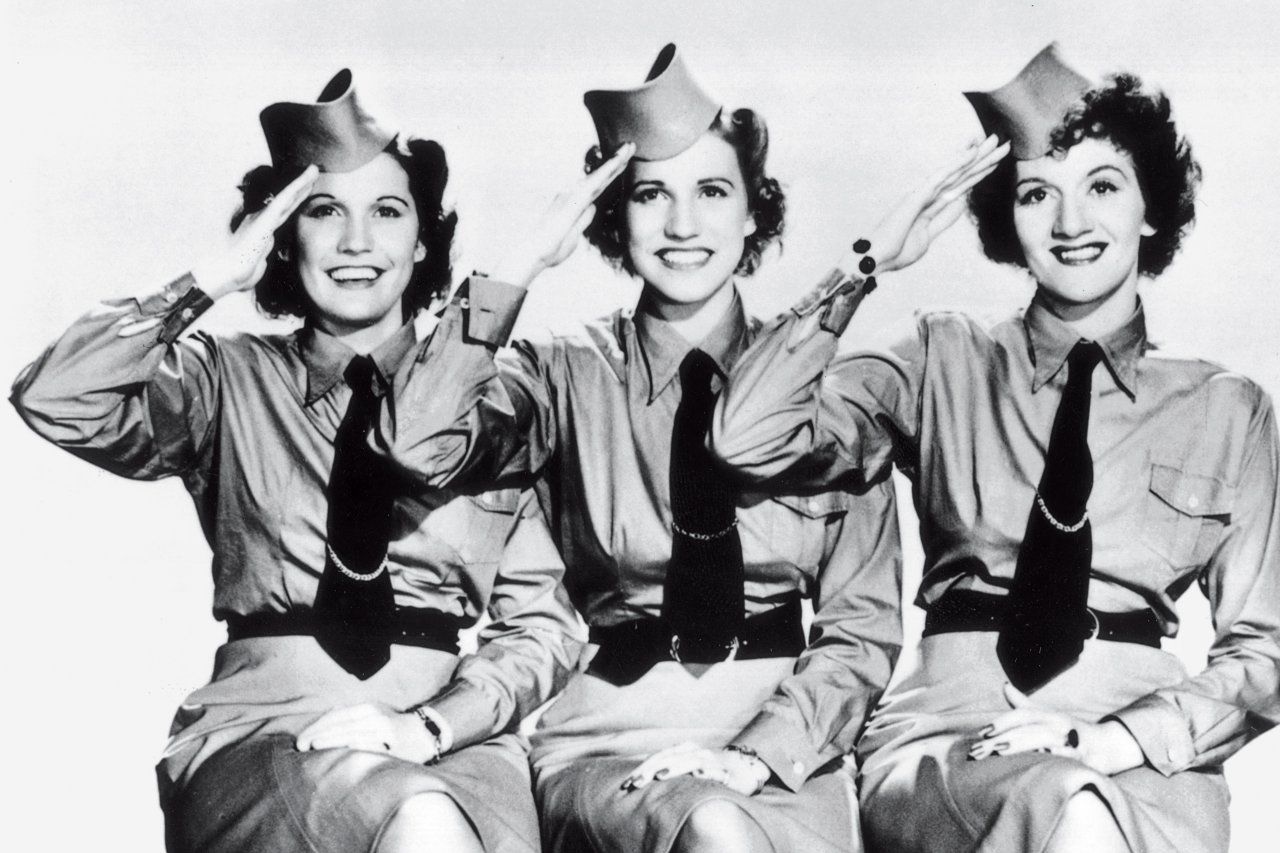
When i read a week ago that Patty Andrews had died, the most shocking thing about it, of course, was that until the day before, she had still been alive. The last surviving Andrews sister was born in 1918 and had been famous during World War II. She and her sisters form one of the indelible images of that age—the trio, in their WAC outfits, saluting, marching toward the camera, smiling that smile of unbleached optimism, singing "Boogie Woogie Bugle Boy," reminding Americans to buy their war bonds.
I got to wondering: what percentage of the people reading or hearing about her passing had the vaguest idea who she was? And of that select group, how many actually knew anything about the Andrews Sisters beyond the fact of their existence—knew anything about the America they inhabited and helped create?
When someone from that era dies, I always start thinking about our collective national identity, and I start wondering whether this "we" writers like me are always invoking can ever really be a we again. I'm afraid I don't think so. Think about it: the experiences this country shared back in Patty Andrews's day—depression and war, mainly—brought the country together and gave us resolve to build a more equitable society, which, however imperfectly, we did. We don't really have those experiences anymore. September 11, one could say; but far from galvanizing us, the aftermath just saw us turn more fiercely against each other.
Our toxic political culture is one culprit here (specifically, in the case of 9/11, the Bush administration's decision to use the event to political advantage). But it's only one. Technology is another. Now, I'm not anti-technology. I own the usual run of devices and gizmos, and I've crossed that crucial portal where I actually now prefer reading my newspapers online. However, I still believe there was something to be said, in cultural terms, for the idea of everyone gathered around the radio or the television, waiting to hear the latest from a trusted voice like Murrow or Cronkite. A kind of civic glue was applied there that we don't have today.
It's for this reason that I mostly still watch shows when they're actually on. This is laughable to younger people, I know, but I take immense comfort in knowing that I am one little member of the (ex–, I'm sad to say) 30 Rock community, and that millions of my brethren were sitting down in front of their televisions at the same time I was to take communion, as it were. Watching it two days later on a train via tablet and earbuds? I couldn't conceive of it; something about the very thought of that offends and saddens me.
I miss the days of those communal rites, large and small. I hope that as the last members of Patty Andrews's generation die off, we don't just completely disregard that pre-atomized America. It had its downsides. Along with the big stuff, like segregation, most of the comedy (with obvious exceptions) was just terrible. But it's worth bearing in mind that there are always downsides to progress as well. As each of us gains more and more ability to live in our own cultural bubble, we get a little farther away from everyone else. Where three or four more generations of this might lead, God only knows. I sometimes wonder how people will meet one another, or how they'll procreate (I guess humans will always get that one figured out). More seriously, I do wonder whether we'll manage to unite for large common purposes—or whether that was just a function of that particular time and place. The chances it was the latter are, I think, higher than most of us would care to admit.
Uncommon Knowledge
Newsweek is committed to challenging conventional wisdom and finding connections in the search for common ground.
Newsweek is committed to challenging conventional wisdom and finding connections in the search for common ground.





